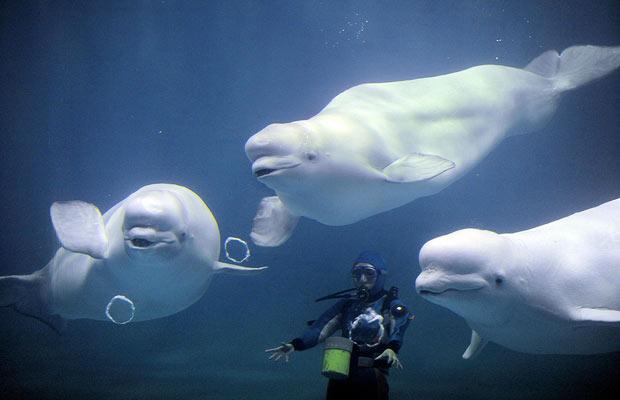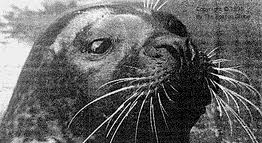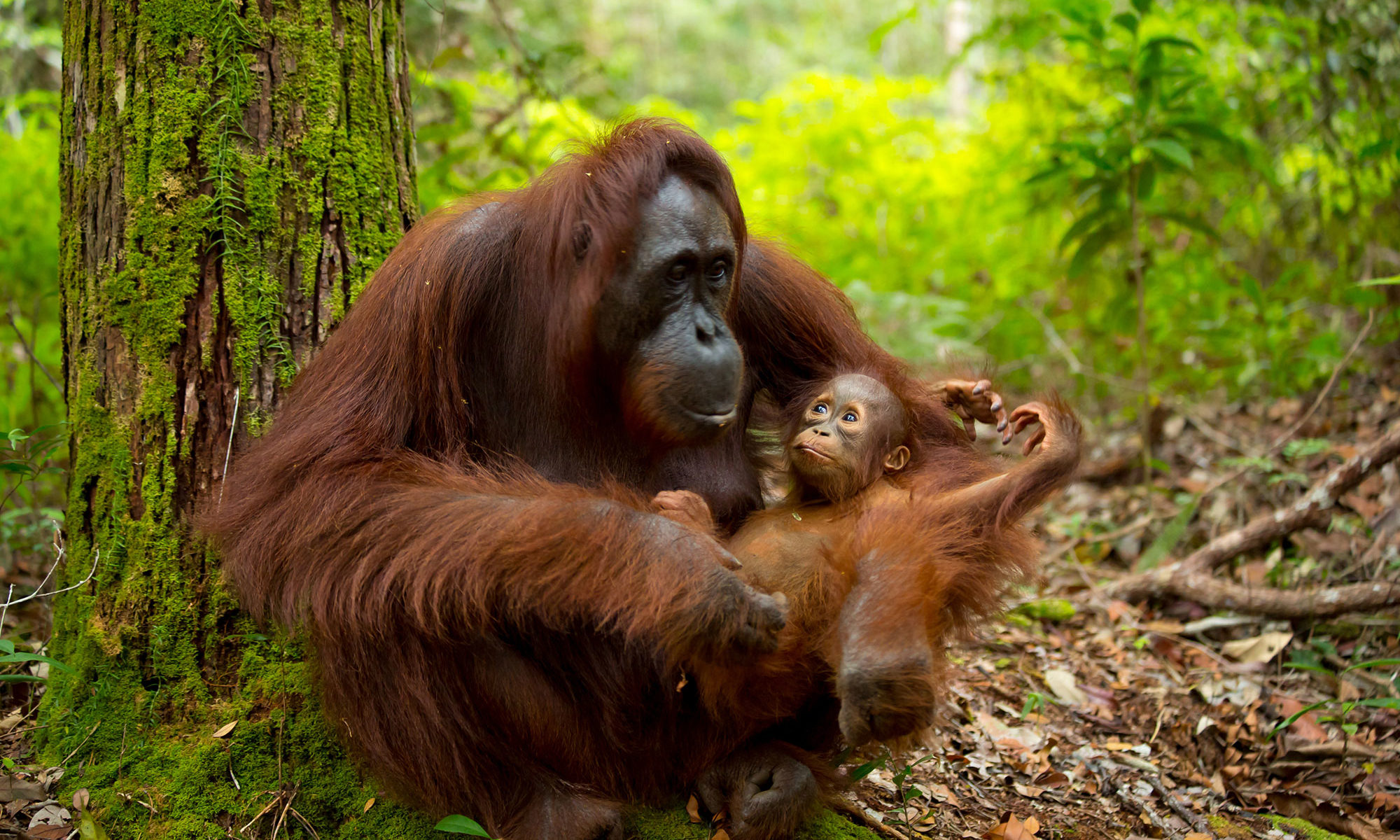
In an article appearing in this week’s Current biology, Dr. Sam Ridgway provides the first ever report of vocal mimicry by a beluga whale. The male beluga spontaneously produced sounds that resemble human speech, which he appeared to learn by listening to divers communicate with each other. The data was first collected nearly 30 years ago – Dr. Ridgway explained to NPR why he waited so long to publish the results.
While certainly an important and interesting finding, this is not the first time that mimicry of human language has been reported for a marine mammal. The New England Aquarium reports that the first documented case involved Hoover, a harbor seal who regularly produced several phrases, as well as his own name.

Although rarely acknowledged, a study in the 1960’s by Margaret Howe focused on teaching a bottlenose dolphin to produce human words. He eventually learned to provide reasonable approximations of many words, and could recite numbers in their proper sequence.

Of particular importance was the dolphin’s reported ability to understand syntax – the order in which words were presented to him – and his consistently accurate responses. Unfortunately, Howe’s work only spanned a few short months.
While other great language studies have been conducted with marine mammals (most notably by Lou Herman and Ron Schusterman), Sam Ridgway’s publication this week has resurrected our fascination with how well other species can learn to produce and understand human language. Critics have always argued that we should make a greater effort to understand other species on their terms, deciphering what they might be communicating to each other naturally. That’s certainly fascinating and appropriate. But, have we moved past the era of exploring the possibility that other species might find us interesting and be willing to communicate using a human language? I hope not.
Thanks for dusting off your old data Dr. Ridgway, your new paper is intriguing and exciting.
